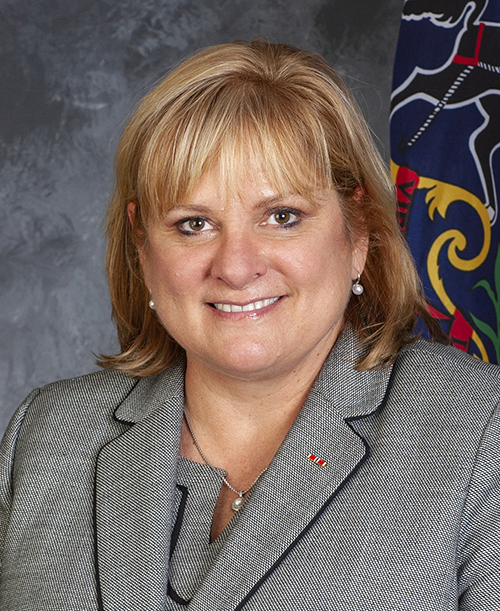Lower tax rates, more businesses, higher revenues. That’s the Pennycuick tax plan in a nutshell.
State Sen. Tracy Pennycuick said Pennsylvania is not attractive to new businesses. She aims to change the state’s tax code to fix that problem.
“We know you’re going to invest in Pennsylvania,” she wants business owners to know. “We’re going to help you.”
Pennycuick (R-Bucks/Montgomery) has been working with her colleagues to pass tax reform legislation in the state legislature since earlier this year. The Senate Finance Committee voted this month to advance Senate Bills 345 and 346, putting them before the full Senate for consideration.
The first, Senate Bill 345, would speed up the reduction of Pennsylvania’s corporate net income tax, bringing it down to 7.99 percent and then dropping it another point every January until it reaches 4.99 percent.
“Last year, we passed the corporate reduction tax,” Pennycuick told DVJournal. “But then it was going to take us another 10 years to get us to 4.99 percent. What this bill does is allow us to accelerate that tax cut.”
The passage of the initial tax cut led to what the Pennsylvania Independent Fiscal Office called “stronger than anticipated corporate net income tax” collections, spurring the Senate Finance Committee this month to push through the accelerated cuts.
“We know if we can cut corporate net income tax, that will increase our business tax,” she said. “It will also induce more companies to come to Pennsylvania and expand business in Pennsylvania.”
Prior to the reforms, Pennsylvania had among the highest state corporate tax rates in the country at 9.99 percent.
Senators said at the time of the bill’s introduction that a reduction in the state’s income tax “leads to better job opportunities, higher workers’ wages, and improved communities – all of which create family-sustaining jobs and attract and retain new talent.”
Senate Bill 346, meanwhile, would increase the state’s “Net Operating Loss” (NOL) carryover limitation. In a memorandum, senators said Pennsylvania “is one of only two states that does not permit businesses to carryover net operating losses consistent with the federal limit.”
“When you start a small business, and you have all that first-year debt, all that equipment, inventory—that’s hard on a small business,” Pennycuick said.
“If you can’t carry over those losses year-over-year, that’s tough,” she said. “You’re going to have trouble staying in business.”
The legislation will, over time, increase the NOL carryover limit from the current 40 percent to 80 percent, “bringing it in line with both the federal limitation and the limitations of 48 other states,” the senators said.
Economic warning signs have been flashing in Pennsylvania recently, with high taxes and poor job opportunities at the forefront of many residents’ concerns.
A poll by the Commonwealth Foundation last month found more than 40 percent of respondents have either thought about leaving, know someone who has left the state, or considered doing so. Among the top-cited reasons for leaving were the state’s high taxes and low job creation.
A WalletHub analysis in March found the state was the fourth-highest for taxes in the country, with residents paying nearly 30 percent more in state and local taxes than the average American household.
Further cost concerns have arisen as the state looks poised to adopt the Regional Greenhouse Gas Initiative, which a nonpartisan review found would cost taxpayers billions of dollars in the coming years.
Pennycuick expressed hope the bills would help drive down the costs of working in Pennsylvania, loosening government burdens on job creators and inducing more of them to set up shop here.
“That would make it a very business-friendly state,” she said. “Right now, we’re not very business-friendly.”

